Whitehaven coal mine: Planning inquiry risks being 'hijacked'
- Published
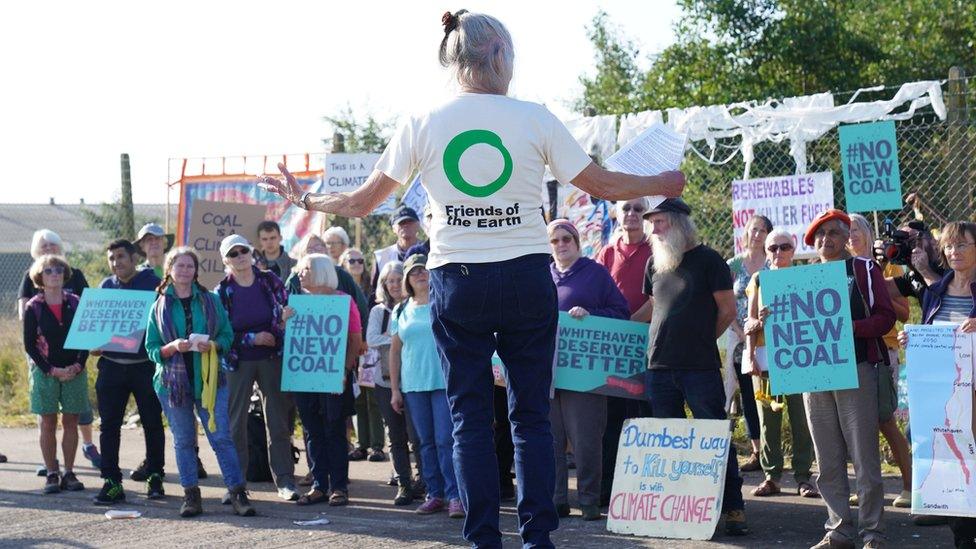
Protesters gathered outside the planned site in Whitehaven
An inquiry into plans for a new coking coal mine must not be "hijacked" into a wider debate about emissions, the prospective operator has said.
The planning inspector is considering, external West Cumbria Mining's application for a mine near Whitehaven.
Gregory Jones QC, for the company, told the hearing "objections to this mine amount to little more than emissions offshoring".
Protesters outside claimed the mine undermined UK climate change promises.
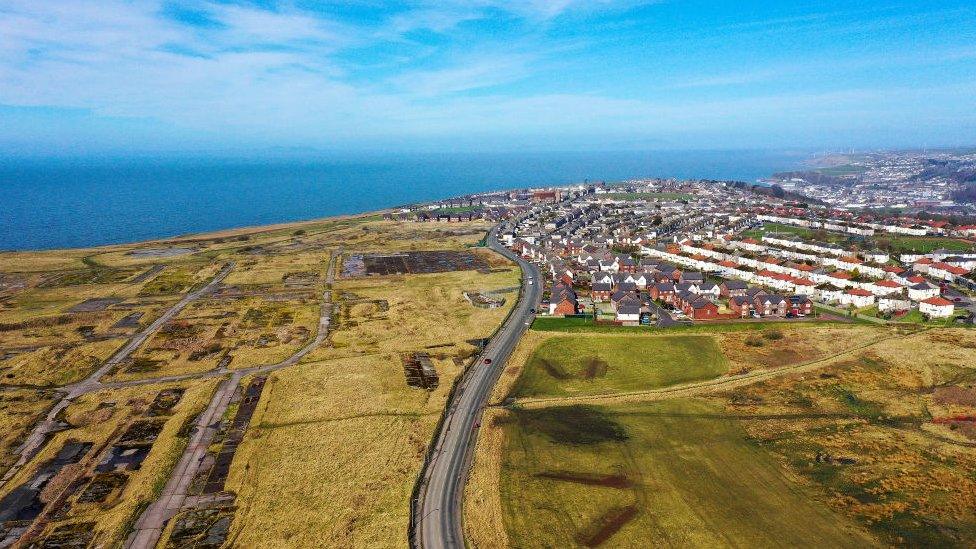
The former Marchon chemical works on the outskirts of Whitehaven is the site of the proposed mine
Mr Jones said: "It's all too easy to object to this development on the basis that it's a coal mine, coal is dirty and bad.
"The reality is that some industries, especially the steel industry, will continue to need coking coal for many years.
"Once it's recognised as a continuing need, which will be met with imports from the USA, irrespective of whether this development gets [approval], the objections to this mine amount to little more than emissions offshoring.
"We won't see it here, but we will still be relying on it or steel which has been imported into this country.
"Focus on the inquiry rightly should be on the effects of this development, and not hijacked into wider objections against the UK, EU and global steel industries."
He added the mine would create 530 permanent jobs, with a commitment to fill 80% of those using local people.
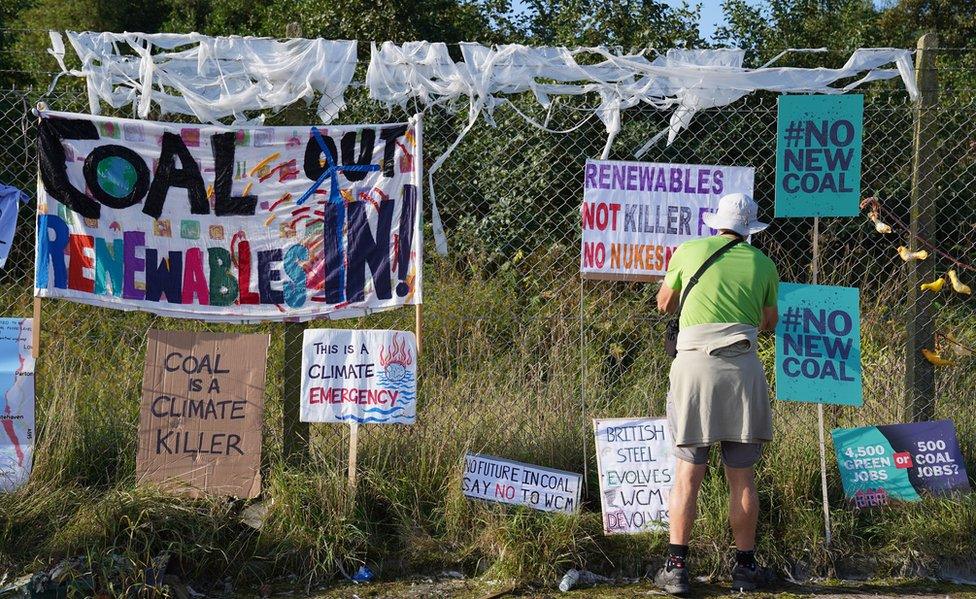
The inquiry is expected to last up to 16 days
Paul Brown QC, for Friends of the Earth, said the steel industry was a "major contributor" to greenhouse gas emissions, and if the UK was to have "any chance" of meeting its climate obligations that would have to change.
"Every coal mine which is allowed to open, every lump of coal that is burnt, all of it contributes directly to climate change," he said.
"The United Kingdom can only credibly claim to be a world leader on climate issues if it practises what it preaches."
He said the UK would lose "any moral authority" over China and India if the mine was approved while the government told them to reduce their dependence on coal.
"If that happens, the implications on climate change are potentially far, far wider than the burning of an additional 2.78m tonnes of coal per year," he said.
The company's case was described as "smoke and mirrors" by Estelle Dehon, representing South Lakes Action on Climate Change, a community-based charity.
Ms Dehon said a "myth has been spun" that locally mined coal would be used in the UK only, instead of importing US coal, as the raw material could be exported across the world and the "magic of mitigation" and off-setting did not exist in reality.
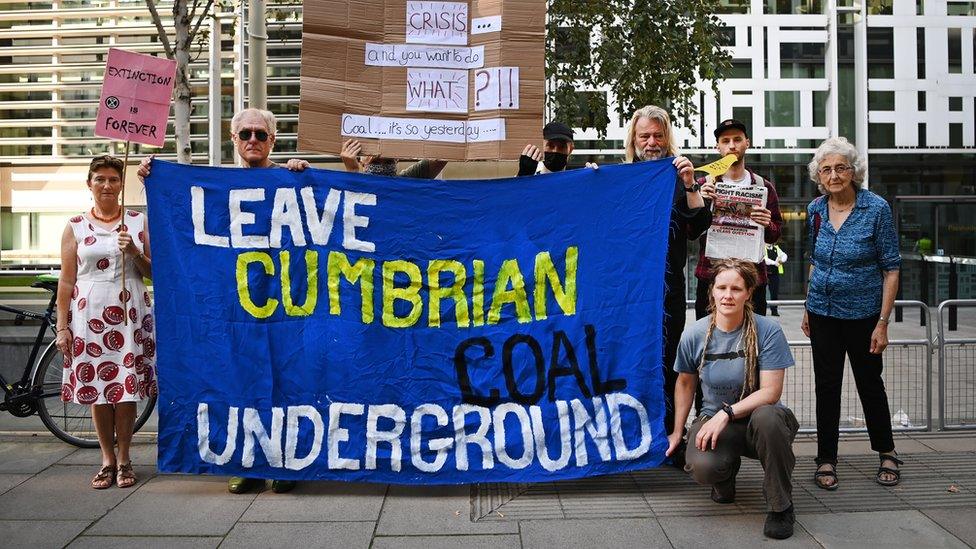
People demonstrated against the mine outside the Home Office in London
The mine was approved by Cumbria County Council in October but in February the authority suspended its decision.
Planning inspector Stephen Normington said the inquiry, which is being held virtually and will last up to 16 days, will consider how the mine would conform with:
Climate change policy
Flooding and coastal change policy
The need for coal and future demand for it in steel production
Employment in the region
Effects on tourism and the area's heritage
Should Whitehaven's planned coal mine be allowed?
The council, which had approved the mine to operate up until 2049 before suspending the permission to further consider carbon policy "implications", has said it would adopt a "neutral position" during the inquiry.
West Cumbria Mining previously said exploratory works led it to estimate there were about 750m tonnes of "excellent quality" coking coal in the area.
However, the company would be limited by planning conditions to produce no more than 2.78m tonnes a year.


The Cumbria mine proposal has turned into a veritable minefield for the government.
Backbench Conservative MPs supporting the plan include the prime minister's own private secretary.
But the scheme's being fiercely opposed by ministers charged with promoting UK climate policy. They say the move would be humiliating for a nation that's urging others to shift away from coal.
It's part of a worldwide economic upheaval being provoked by the need to cut emissions urgently to limit further harm to the damaged climate.
Saudi Arabia wants to suck out every last drop of oil; the US gas industry is seeking more supplies; the UK wants to squeeze more hydrocarbons from the North Sea; in Poland they value the jobs and warmth their coal industry brings.
But scientists say it's foolish to seek more fossil fuels when we've discovered enough already to wreck the climate.
A year of climate extremes has persuaded many of the need to cut emissions - but the politics is hard.

The proposed mine on the former Marchon chemical works site would remove coking coal from beneath the Irish Sea for the production of steel in the UK and Europe and it is supported by the Conservative MP for Copeland, Trudy Harrison.
However, it is opposed by Westmorland and Lonsdale MP Tim Farron, of the Liberal Democrats, who described it as an "almighty backwards step in the fight against climate change".
He told the hearing it was a "massive issue" and could "rob us of the capacity to push world leaders towards the radical decarbonisation we desperately need" ahead of the COP26 climate conference.
More than 2,300 other people also objected to the plan along with campaigners including Friends of the Earth, Keep Cumbrian Coal in the Hole and the World Wide Fund for Nature (WWF).

Follow BBC North East & Cumbria on Twitter, external, Facebook, external and Instagram, external. Send your story ideas to northeastandcumbria@bbc.co.uk, external.
Related topics
- Published6 September 2021
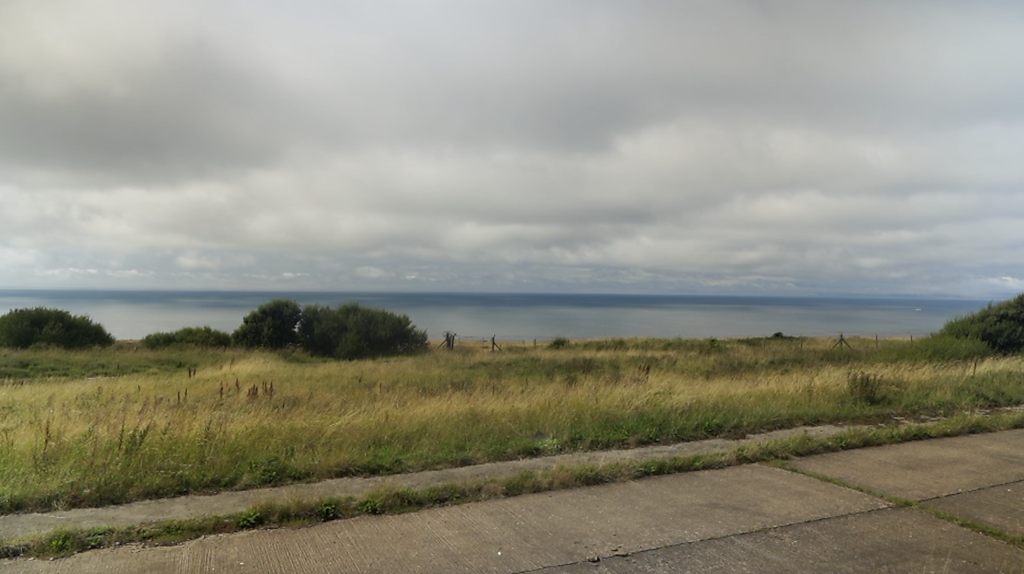
- Published12 March 2021
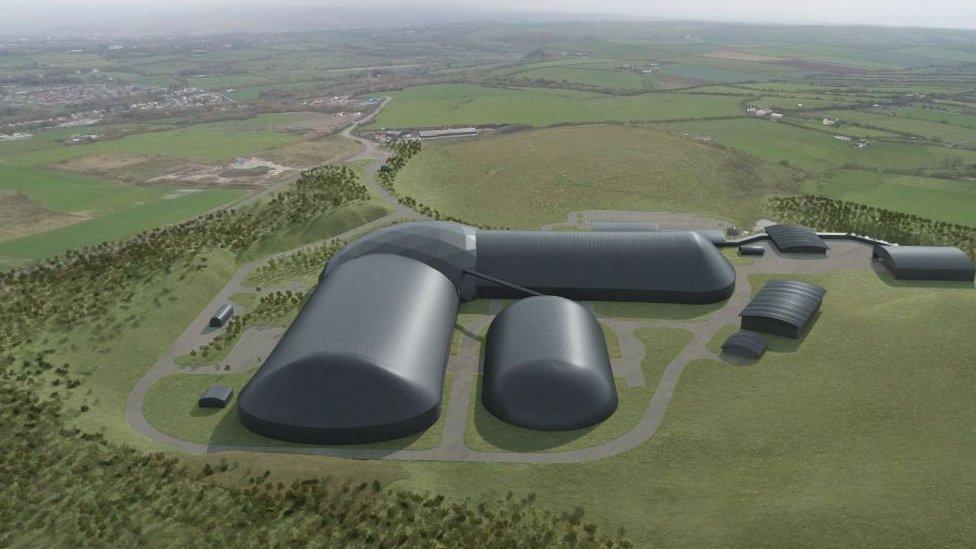
- Published9 February 2021
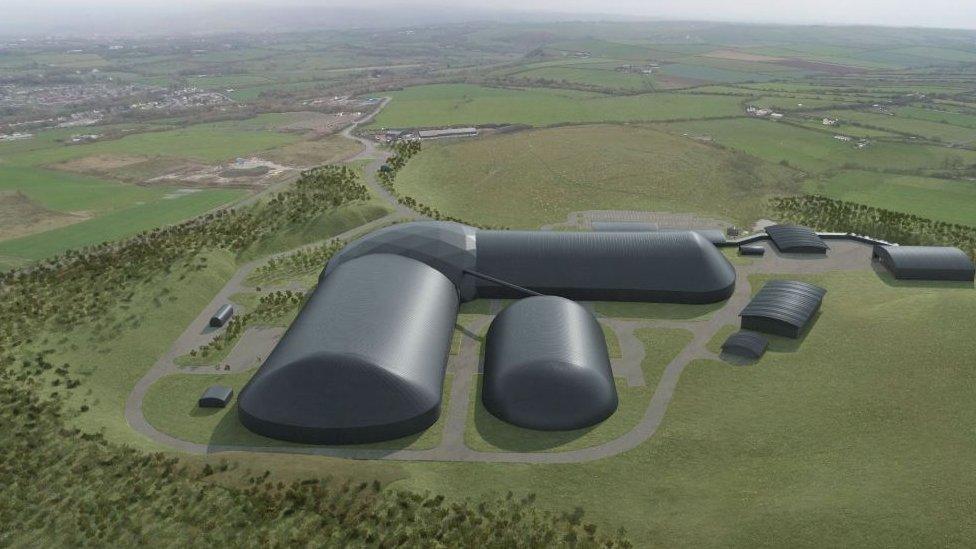
- Published8 December 2022
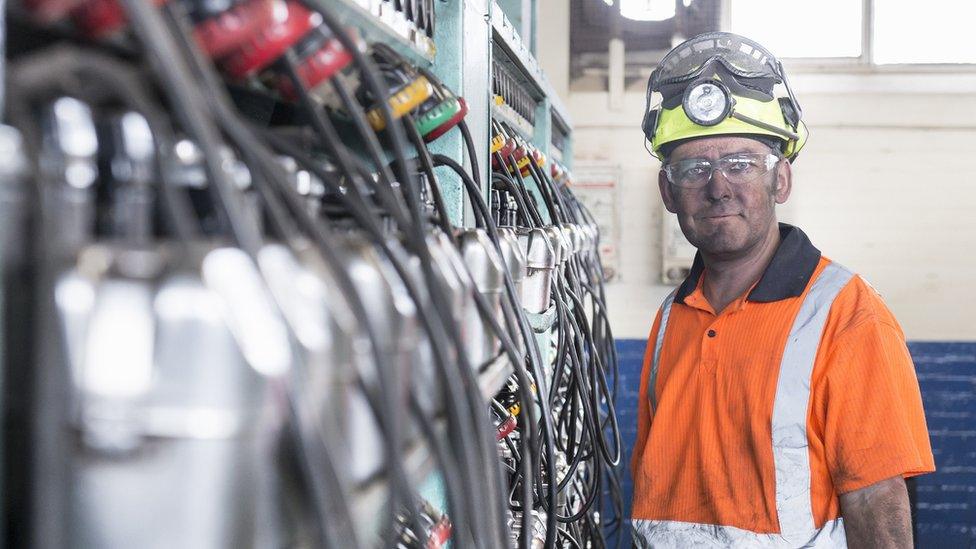
- Published26 February 2021

- Published1 March 2021
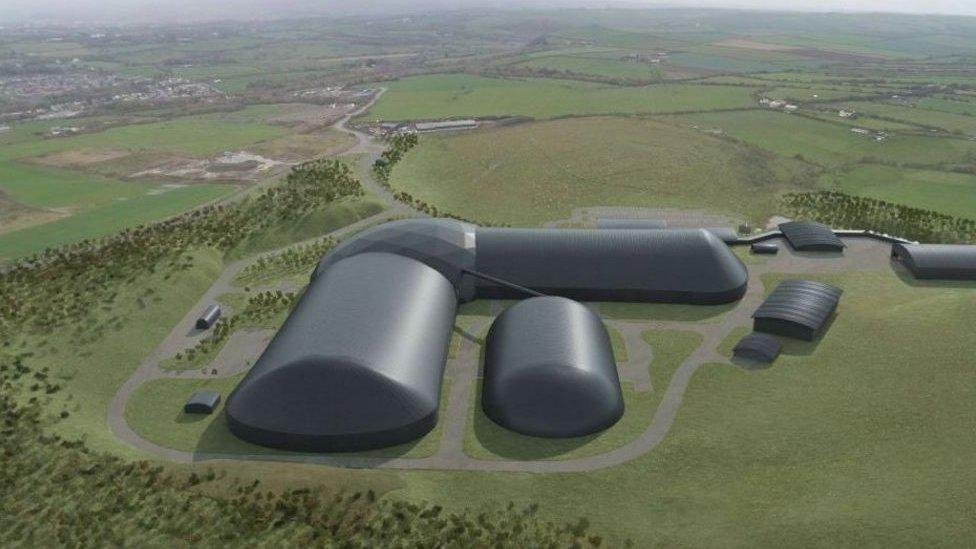
- Published14 January 2021
